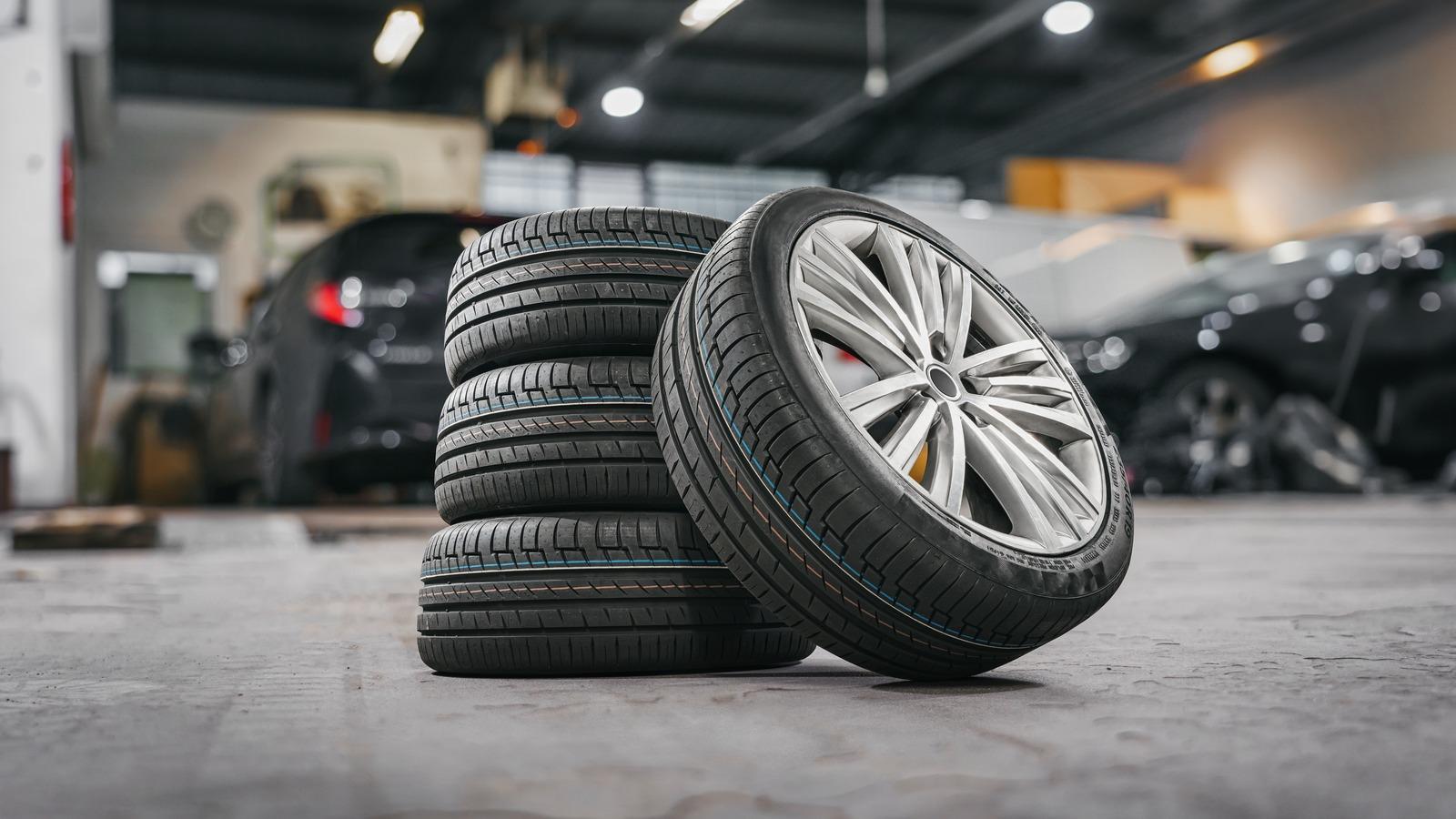Automotive Tire Innovations Drive Global Growth and Sustainability in 2025

The automotive tire industry is witnessing dynamic transformation, fueled by rapid technological advancements, increasing vehicle ownership, and the growing demand for eco-friendly and high-performance tire solutions worldwide. Innovations such as smart tires with sensors, sustainable materials, and electric vehicle (EV) specific tires are redefining the landscape, positioning the sector for robust growth and competitive evolution. Manufacturers and suppliers across regions are racing to develop cutting-edge products and expand geographically to meet evolving consumer and regulatory expectations.
According to Straits Research, the global automotive tire market size was valued at USD 138.42 billion in 2024 and is expected to grow from USD 144.37 billion in 2025 to reach USD 202.19 billion by 2033, growing at a CAGR of 4.3% during the forecast period (2025-2033).
Recent Innovations and News
Recent months have seen key players aggressively push towards smart tire technologies integrating advanced sensors capable of real-time monitoring of tire pressure, temperature, and wear, enhancing vehicle safety and reducing maintenance costs. For example, Goodyear unveiled its SightLine smart tire technology designed to detect hazardous road conditions and integrate with vehicle automatic braking systems. Although still in the demonstration phase, this innovation is targeted at automakers seeking safer and more intelligent tire solutions.
Sustainability remains a pivotal focus. Michelin committed to at least 50% recycled or sustainable materials in its tires by 2030, while Continental launched Taraxagum dandelion rubber tires in Germany supported by EU green grants to reduce environmental impact. Pirelli made headlines with the inauguration of Latin America’s first fully solar-powered tire factory in Brazil, boasting significant CO₂ emission reductions. Hankook Tire introduced self-healing polymer compounds that automatically repair punctures, prolonging tire life up to 40%, aimed at premium EV and passenger vehicle sectors.
Global Key Players and Regional Activity
North America
The United States hosts some of the largest tire manufacturers like Goodyear Tire & Rubber Company and Michelin North America, both pushing smart tire technologies and sustainable production methods. Goodyear’s innovation in connected tires and its collaboration with automotive OEMs reinforce its leadership position. Falken and Nexen Tire also contribute to diversity in offerings with a strong presence in replacement tires and specialty segments.
Europe
Europe’s tire sector, led by giants such as Michelin (France), Continental (Germany), and Pirelli (Italy), is making strong advances in eco-friendly and digital tire innovations. European companies benefit from stringent EU environmental policies and consumer demand for sustainability. Continental’s launch of Taraxagum eco tires and Michelin’s airless tire technology demonstrate this commitment to green innovation. The region also represents a critical market for premium tires, supporting luxury and electric vehicle segments.
Asia-Pacific
The Asia-Pacific region drives significant volume growth, with emerging economies increasing vehicle ownership. Major players in the region include Hankook Tire (South Korea), Yokohama Rubber (Japan), Toyo Tire Corporation, and Indian manufacturers like MRF, CEAT, and Apollo Tyres. Hankook’s innovations in puncture-resistant and self-healing tires, combined with India’s growing demand fueled by urbanization and government infrastructure initiatives, underscore the region’s crucial role. China remains vital for OEM tire supply chains and sustainable production technologies.
Latin America and Africa
Latin American tire manufacturing focuses increasingly on sustainability with Pirelli’s solar-powered factory and growing electric vehicle penetration. Africa’s market is growing steadily, with partnerships between established manufacturers like Michelin and Bridgestone to address rising passenger and commercial vehicle fleets and improve road safety.
Trends Shaping Industry Growth
Several dominant trends drive the sector’s trajectory. The smart tire revolution, featuring embedded sensors and IoT connectivity, enables predictive maintenance and improved road safety. Electrification of transport has increased demand for EV-specific tires that offer low rolling resistance and enhanced durability, crucial for maximizing battery range and vehicle efficiency.
Sustainability has moved to the forefront, with manufacturers investing in bio-based and recycled raw materials, as well as cleaner manufacturing processes. The use of renewable sources such as dandelion rubber exemplifies this. Furthermore, the increasing popularity of tubeless tires, especially in two-wheelers and passenger cars, is changing production priorities due to their advantages in safety and fuel efficiency.
Digital transformation, including tire management platforms and integration with vehicle telematics, supports fleet operators and OEMs seeking efficiency and operational insight. Regional regulations, such as the European Union tire labeling directive, push manufacturers toward higher-quality, eco-friendly products. Industry consolidation, mergers, and acquisitions ensure the competitive landscape continuously innovates and adapts.
Recent News Highlights
-
January 2025: Goodyear launches SightLine smart tire technology aimed at improving road safety via real-time hazard detection integration with vehicle systems.
-
December 2024: Hankook Tire introduces self-healing tires leveraging advanced polymer technology to extend lifespan and reduce vehicle downtime.
-
November 2024: Pirelli’s first solar-powered factory in Bahia, Brazil, begins operations, significantly reducing carbon emissions in tire manufacturing.
-
Mid 2024: Continental launches eco-friendly Taraxagum dandelion-based tires in Germany, supported by EU Green Recovery Funds.
Outlook
The automotive tire sector is expected to grow steadily through 2033, supported by rising vehicle production, urbanization, and EV penetration. The dual drivers of technology advancements and sustainability initiatives will shape future growth and competitive positioning. Investments in smart tire capabilities and environment-friendly materials will be critical to meet evolving regulatory demands and consumer preferences globally.
Summary
The automotive tire industry is undergoing a profound transformation fueled by safety innovations, sustainability commitments, and expanding global demand. Major players across regions increasingly prioritize smart tire technologies and eco-friendly products, propelling growth and competitive differentiation. The coming years will witness an acceleration in next-generation tire adoption for electric and autonomous vehicles, making tires pivotal to the future of mobility.
- Art
- Causes
- Crafts
- Dance
- Drinks
- Film
- Fitness
- Food
- Games
- Gardening
- Health
- Home
- Literature
- Music
- Networking
- Other
- Party
- Religion
- Shopping
- Sports
- Theater
- Wellness


